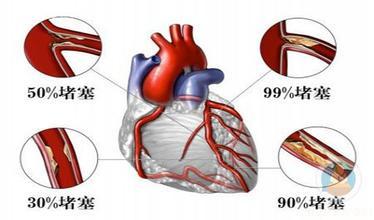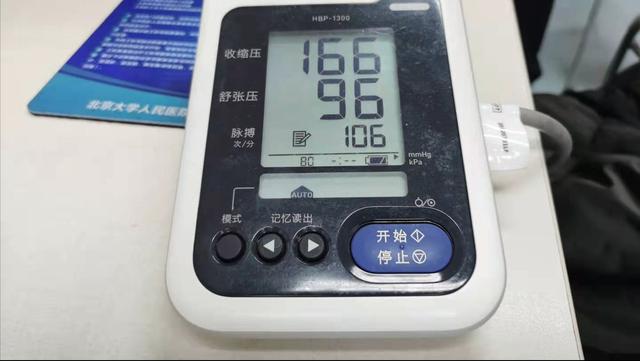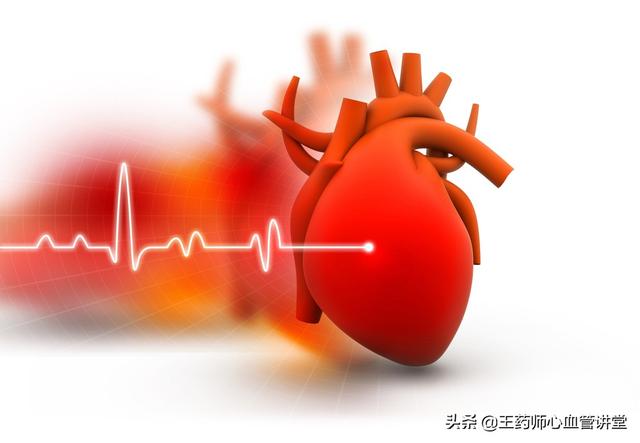Does smoking affect clogged blood vessels and elevated blood pressure?
Once a million times to talk about the great harm of smoking, but also once a million times to advise people to quit smoking, but there is no way still a lot of people are still smoking, there are still a lot of people finally went to the stage of heart attack, brain infarction still do not know how to repent. Today someone asked "Why does smoking affect clogged blood vessels and elevated blood pressure?"With this question, then Dr. Chang will talk about why smoking clogs blood vessels and raises blood pressure.

First of all, many people who have had heart attacks and cerebral infarcts have smoked, and a major reason why they end up with blocked blood vessels is because of smoking. So, how can smoking, which seems to have nothing to do with cardiovascular disease, clog blood vessels? In fact, there are many factors involved, such as smoking damages the endothelial cells of blood vessels, smoking activates systemic inflammation, and smoking also leads to platelet aggregation and so on. In short, smoking triggers a number of mechanisms through its own power, ultimately leading to the blockage of human blood vessels.

For some people, smoking can also lead to an increase in blood pressure, which can be due to a variety of reasons, such as activation of the sympathetic nervous system, activation of the renin-angiotensin-aldosterone system, which leads to sodium and water retention and vasoconstriction, and so on. And smoking cessation for hypertensive patients to reduce the occurrence of cardiovascular and cerebrovascular disease also has a huge benefit, can significantly reduce the chance of cardiovascular and cerebrovascular disease in patients with cardiovascular and cerebrovascular disease.

In conclusion, smoking is an unhealthy behavior and is one of the important risk factors for cardiovascular disease and oncological cancers. And it is specifically noted that for many people, passive smoking also significantly reduces the incidence of cardiovascular disease and tumors. So, in the end, all smokers are advised to quit as soon as possible, and all non-smokers are advised to never learn to smoke. For no other reason than health.

Nothing is absolute, maybe it will, maybe it won't vary from person to person. Nowadays, there are a lot of medical researches and academic papers that say so, and we can only choose to believe in them, compared to the importance of the body, we would rather believe in them. Previously, our perception was that smoking would only affect the lungs because the smoke pumped in was the same as smoking bacon over a wood fire in the countryside, which smoked the lungs to blackened blackness, and the end result was that a portion of the population suffered from lung cancer as a result. With further scientific research, it is found that the harm of tobacco to the body is far more than these, tobacco contains more than 5000 kinds of harmful chemicals, think about how horrible it is! Now medical research has found that the ingredients in tobacco for the cardiovascular and cerebrovascular harm is also huge, because it will be deposited in the inner wall of the blood vessels, it is not difficult to imagine, once the accumulation of too much, resulting in blood vessel blockage, I'm afraid that not only elevated high blood pressure so simple, under normal circumstances, even if you don't smoke, our blood vessels will be with the age of the growth of the slow aging of the many people's living habits are also unhealthy, smoking and alcohol, meat and fish, staying up late, and the many people are not healthy. Fish and meat, stay up late, do not exercise, will cause blood vessels cholesterol, triglyceride elevation, these are directly caused by cardiovascular pathology factors, coupled with the environment in which we now live, and 20 years ago has been very different, that time the air quality is very good, there is no industrial exhaust, automobile exhaust pollution, and now on the contrary, if the smoking, is tantamount to adding insult to injury, and for our daily life, smoking is optional, but not necessary. Smoking is a dispensable thing, since there is no way to avoid other aspects, so smoking is not the most priority should be given to give up? I have personally done an experiment, after smoking a cigarette, I measured the blood pressure is 130/85, half an hour later, I re-measured it, the blood pressure is 128/80, it can be seen that smoking will indeed lead to an increase in blood pressure. Other medical data, you can go to consult the doctor, I can not make a professional answer!
I don't think anyone would have a problem if they said that smoking does something to the lungs, but unbeknownst to us with the inhalation of tobacco, our blood vessels are also taking a toll.
The relationship between smoking and blood vessels!
Tobacco contains a large number of harmful ingredients, these harmful ingredients into the body, it will have an impact on our blood, blood lipids, blood vessels, accelerating the progress of atherosclerosis, the formation of plaque thrombosis, while smoking and refreshing, the vast majority of fatigue will be in the fatigue on a smoke to drive away fatigue and drowsiness, but if the long-term smoking will make the nervous excitability increases, destroying the normal "rotation But if long-term smoking will increase nerve excitability, disrupt the normal "rotation" mechanism, so that it is disorganized, and the continuation of this disorder will cause spasmodic contraction of its innervated blood vessels, resulting in obstruction of blood flow and clogging of blood vessels.
The relationship between smoking and blood pressure!
In fact, for many patients who are regular readers of the science, the fact that there must be a relationship between smoking and blood pressure was made clear when I illustrated the link between smoking and blood vessels.
Concept of blood pressure:: "Blood pressure is the localized pressure exerted by the blood in the body's vessels against the inner walls of the vessels.", so what are the preconditions in causing this fact?
Blood volume: the amount of blood flowing through a blood vessel per unit of time.
Pump Function: Blood doesn't flow out of thin air, so the amount of force that makes it flow, matters.
Peripheral resistance: blood flow alone does not produce blood pressure, and this is where the elasticity of blood vessels comes into play.
All three work together to produce blood pressure, so as long as there is a change in all three, then blood pressure will naturally be affected, and at this point we are thinking back to what was said above, that smoking hardens the arteries, which means a decrease in the elasticity of the blood vessels; that smoking causes spasmodic constriction of the blood vessels, which means a decrease in the flow of blood; and that the decrease in flow of blood caused by smoking continues to be sustained, and can cause damage to the heart muscle, which means that it causes the force of the blood flow to be Decrease.
In this way, smoking basically eliminates all the conditions that can affect blood pressure, and at this point we can fully say that smoking is a key factor that leads to higher blood pressure, and if the patient is older and has hypertension, then please quit smoking immediately, otherwise it may be life-threatening:
Cardiovascular blockage: acute heart attack, sudden death.
Cerebrovascular blockage: cerebral infarction, cerebral hemorrhage
I hope my answer helps you!
If there's anything you don't understand, comment and private message me!
Thank you! In fact, to be honest, it varies from person to person, some people smoke and drink all their lives, and in the end, no disease, some people do not smoke and drink all their lives, but eventually the disease arises, perhaps this is the human body this life, this can not be helped.
But to be honest, the vast majority of people do not die before the moment, is not aware of their own life exactly what kind of, and indeed smoking will affect their own blood vessels, so in general, or do not go back to smoking and drinking, after all, not until the last moment, who does not know exactly what life.
And any study to speak, in fact, there are certain conditions of application, perhaps only applies to more than 80% of the world's people, there are so 1% ~ 2% of the people, no matter what is not a special problem. Or that old saying, no one knows until they die whether they are 1%~2% or 80%, so according to the rule of thumb, it is better to quit smoking honestly.
If according to those studies, smoking does affect their own blood vessels, in particular, it will damage the lining of the blood vessels, resulting in increased rupture area, not easy to heal, hardening of the blood vessels, the formation of a series of plaques, and ultimately will cause instability of the blood pressure, if not actively treated, there may be a series of subsequent formation of cerebral hemorrhage cerebral infarction, and so on.
In fact, these are a chronic process, relatively long-lasting and unlikely to produce very malignant changes all of a sudden at some point in time.
So it's better to maintain healthy habits, although it's possible that some will be fine for the rest of their lives, but it's a small probability after all.
Blessings to all of you for good health!
If you have any questions you can click below to ask them directly. Feel free to like, comment, retweet and follow to bring you to the real world of neurosurgery (brain surgery).
First of all, I think your question is a particularly good one. Most people think that smoking has the greatest impact on the respiratory system, but in fact, it does not. Smoking may certainly cause a series of respiratory diseases such as bronchitis, bronchopulmonary cancer and chronic obstructive pulmonary disease. However, smoking is also a very dangerous factor for the cardiovascular system, and it is an independent risk factor. Long-term heavy smoking will lead to vascular sclerosis, intravascular plaque formation, so that the blood vessel narrowing or even occlusion. Commonly speaking, when the stenosis is located in the heart blood vessels, caused by coronary heart disease, manifested as angina pectoris, myocardial infarction, hypertension, etc.; when the stenosis is located in the cerebral blood vessels, caused by cerebral infarction, cerebral arterial blood supply, headache and dizziness, etc.; when the stenosis is located in the pulmonary blood vessels, perirenal blood vessels, cervical blood vessels, blood vessels of the lower limbs and so on, caused by the pulmonary embolism, renal artery stenosis, transient cerebral ischemic attack, lower limbs, and so on. vaso-occlusive vasculitis and so on. Therefore, I think that the cardiovascular risk of smoking is much greater than the risk to the respiratory system.
Smoking is hazardous to health, it's not a matter of whether you recognize it or not, it's an indisputable fact with warning labels written on cigarette boxes. Smoking is associated with a wide range of diseases, and smoking is one of the most preventable causes of human death, with about 5 million people worldwide dying each year from cardiovascular disease, cancer, and chronic respiratory disease caused by smoking.
Smoking can increase the release of norepinephrine from sympathetic nerve endings, which can raise blood pressure, and it can also impair nitric oxide-mediated vasodilation through oxidative stress, causing an increase in blood pressure.
Smoking can damage the endothelium of blood vessels, accelerate atherosclerosis, promote platelet aggregation, promote thrombosis, resulting in vascular obstruction, which is an important cause of coronary heart disease, cerebrovascular disease and peripheral vascular disease!
The questioner asked if smoking affects the blood vessels, aggravates clogging and raises blood pressure, and the answer is yes! Maybe you can see some people spit all day, but live a great age, but please do not take an example as an excuse for not quitting smoking, health is your own. In addition, smoking can directly cause lung cancer, but also associated with tongue cancer, oral cancer, laryngeal cancer, esophageal cancer, bladder cancer, intestinal cancer and so on. For the sake of your own and your family's health, it is better to stay away from tobacco!
Dr. Zhang Online - Welcome to your attention!
Does smoking affect clogged blood vessels and elevated blood pressure?
In recent years, with the improvement of lifestyle, the incidence of cardiovascular and cerebrovascular diseases is getting higher and higher. In particular, cerebral infarction is the most frequent, and the rate of disability, death and recurrence rate are very high, can be said to be the killer of human health, so in order to prevent the emergence of cerebral infarction, we need to understand the cerebral infarction triggered by the "culprit".
The main cause of blood vessel blockage is the progression of atherosclerosis. Nicotine, the main harmful substance in tobacco, will continuously damage the endothelial tissue of blood vessels, resulting in vascular damage and providing an opportunity for the deposition of low-density lipoprotein (LDL) to take advantage of the situation. In addition, prolonged smoking will also cause cholesterol metabolism disorders in the body, thus accelerating the progress of atherosclerosis.

Long-term smoking also raises blood pressure. Nicotine in tobacco activates the sympathetic nerves, which, when excited, release neurotransmitters that act on the adrenal glands, which in turn secrete a variety of catecholamines, including epinephrine, norepinephrine and dopamine, among others. These vasoactive substances cause the heart rate to increase, leading to a rise in blood pressure.
Smoking also causes increased blood pressure fluctuations, with smokers having higher pulse pressures than non-smokers, and increased blood pressure fluctuations increase damage to the vascular endothelium, which in turn increases the risk of acute cardiovascular events.
The sooner you quit smoking, the better.
Smoking will increase the probability of lung cancer in addition to increased blood vessel blockage. But the most affected and the most dangerous are cardiovascular complications, when smoking and hypertension, high blood pressure, high blood fat, high blood sugar and other risk factors coexist, then, the risk factor is superimposed on the multiplier relationship, in short, is 1 +1 > 2. Want to stay away from cardiovascular disease, that is almost impossible.
Please be kind to your blood vessels and heart and quit smoking, starting now.
I am Pharmacist Wang, dedicated to helping you manage your body by explaining complex and difficult disease knowledge in plain words. Your praise is my greatest motivation! In addition, if your family members also have related troubles, please forward this article to them!
I want to tell you from my experience that the answer is yes, it's just a matter of how big the impact will be and how early it will be.
Although we all know that smoking is harmful to health and smoking is expressly prohibited in public places, tobacco is still popular among smokers. Out of sight, out of mind, out of fear, wrong! This is extremely wrong behavior, don't let the fluke or indifferent blind your eyes, when you meet the smoking hazardous health diseases will know.
Hubby was not a smoker, since the engineering business, cigarettes and alcohol will not leave the body, at first a day a two, and then slowly become a phone call a, more often than not a day can smoke 5 packets. Needless to say, the smell of smoke on his body, and now his smoking history of 10 years.
March 8 this year, he gave me a special gift. During construction at the site, the equipment fell, his left forearm incomplete break away, blood vessels, nerves and bones all broken, the bone is a comminuted fracture, after several twists and turns turned to Weifang 89 Hospital to be saved. When I saw his arm full of tubes, I couldn't help but have tears in my eyes.
For such a big test, we can only face it strongly. Facing the greetings from his family and friends, he always held an optimistic attitude, "It's fine, it's fine, he will go out in a few days", however, the fact was not as simple as he imagined, and a thrombosis occurred on the 7th day of hospitalization. To be honest, we didn't know what a thrombosis was before, and we just saw his hand instantly change from normal color to zombie color, and from bulbous to shriveled. Not a single drop of blood could be lodged from the belly of his finger. The doctor told us that he had a blood clot, that is, a blocked blood vessel. During the surgery it was obvious to him that his husband's blood vessels were not good. Normal blood vessels are thick, bouncy and smooth, but his blood vessels are thin, hard and stringy, and such blood vessels are very prone to cause blood clots. Blood clots are unpredictable and can happen at any time. Ultimately, this is all a serious consequence of smoking. People with blood clots can't force themselves when they are having a bowel movement, especially if they are constipated, and if they force themselves a little bit, their blood vessels will be embolized. Diet with blood clots must be light. These common sense before we have not heard of, this time the blood vessels died, did a four-hour surgery, he had another leg more than 10 centimeters of scar, take a section of blood vessels.
From now on, we will strictly abide by the doctor's advice and buy all fruits and vegetables that can moisten the bowels, unclog the blood vessels and prevent blood clots, regardless of their cost. In spite of our attention, blood clots still occurred from time to time, more often than 10 times a day. On the 8th day after the 2nd surgery, his blood vessels died again, and he had to undergo a 3rd surgery, which took 7 hours with observation. The doctor told us that in the operating room just to connect his blood vessels soon, a thrombosis occurred, had to reopen for dredging, surprisingly, there are five or six centimeters of blood clots, the doctor patiently and quietly observed, so, 7 hours before the husband came out of the operating room. The doctor said that the good blood vessels that can be intercepted are unintercepted, whether he can live or not depends on his own, he also did his best.
My husband's blood clots are very unstable back and forth, heparin sodium has not stopped, and then the nurse practitioner said that heparin sodium does not work for my husband, and transfusion of too much will only bring more risk in the resuscitation, and is very likely to cause hemorrhage can not be resuscitated.
We didn't miss a single change and spent every day in fear, then it finally stabilized, but on the 12th day after the 3rd surgery, one of his blood vessels burst under the strain, and then another surgery was performed, and that's how he stayed in the hospital for 75 days.
On the contrary, the 19-year-old boy in our clinic was discharged from the hospital after only 12 days because of the quality of the blood vessels and active cooperation with the doctors and parents, even though his left hand was cut off flush with a foreign body. Think about how big a difference there is between 12 days and 75 days, and imagine the pain and suffering that has been endured.
The doctor told us a real case, some time ago his colleague's patient, also a young man, the doctor told him that he would be discharged tomorrow, the lad was so happy that he ran downstairs to the hospitalization floor, secretly smoked a cigarette, and in the evening his fingertips were blackened, and the doctor, after carefully inquiring about all his condition, asked, "Have you smoked?" The lad adamantly denied it, the doctor used every means, the lad admitted it, but it was all too late, his fingertip was completely blackened and cut off.
Those with broken bones, especially those having re-implantation surgery, are not only not allowed to smoke during their hospitalization, but they are not allowed to smell the smoke, not even a little bit. Once discharged from the hospital the patient must not smoke either, and must always remain vigilant. Smoking is harmful to health, this is the nurses often before and after the discharge of the necessary instructions, but also the hospital repeatedly emphasized, in the hospital posters everywhere.
Smoking is not only very harmful to the smokers themselves, but also to the people around them, and I'm sure you are aware of the dangers of second-hand smoke.
Now my husband not only does not smoke, but also often tell close friends and family not to smoke as well. We should not underestimate the dangers of smoking, we must pay attention to it [cheer], and actively publicize it.



First of all, I think you have asked a particularly good question. Most people think that smoking has the greatest impact on the respiratory system, but in fact it does not. Smoking may certainly cause a series of respiratory diseases such as bronchitis, bronchopulmonary cancer and chronic obstructive pulmonary disease.
But, smoking is also a very risky factor for the cardiovascular system and is an independent risk factor. Long-term heavy smoking can lead to vascular sclerosis, plaque formation in blood vessels, making blood vessels narrowed or even occluded. In layman's terms, when the narrowing is located in the heart blood vessels, it causes coronary heart disease, which manifests itself in angina pectoris, myocardial infarction, hypertension, and so on;
When the stenosis is located in the cerebral blood vessels, it causes cerebral infarction, insufficient cerebral arterial blood supply, headache and dizziness, etc.; when the stenosis is located in the pulmonary blood vessels, perirenal blood vessels, cervical blood vessels, lower limb blood vessels and other parts of the body, it causes pulmonary embolism, renal artery stenosis, transient cerebral ischemic attack, lower limb vascular occlusive vasculitis, etc., respectively. So, in my opinion, the cardiovascular risk of smoking is much greater than the risk to the respiratory system.

This is a true statement. Zhou encountered some young patients with coronary heart disease myocardial infarction who had no risk factors other than smoking.
Why is smoking prone to vascular disease?

Harmful substances inside the cigarette can damage the endothelium, so that the smooth endothelium becomes rough, the gap between the endothelial cells increases, so that the blood lipids inside the blood, especially low-density lipoprotein (LDL) cholesterol and other substances, it is easy to pass through the endothelial gap into the endothelium, by the monocyte-macrophage phagocytosis, which will lead to the formation of atherosclerotic plaques.
Some people may ask why there are people who smoke very aggressively but do not get sick. This does happen, and one can only recognize that the person has good genes and good endothelial function, which is a small probability.
Studies have confirmed that smoking is significantly associated with atherosclerotic disease, so doctors will repeatedly emphasize to people at high risk of coronary heart disease, hypertension and diabetes that they are determined to quit smoking, including second-hand smoke.
If smoking will lead to increased blood pressure, this situation, long-term smoking may even cause cardiac arrhythmia, causing the emergence of heart disease, and the nicotine contained in the smoke of this substance will increase the incidence of lung cancer this disease, so for the sake of their own health, we must pay attention to the usual time less smoking, it is best to be able to quit.
This question and answer are from the site users, does not represent the position of the site, such as infringement, please contact the administrator to delete.